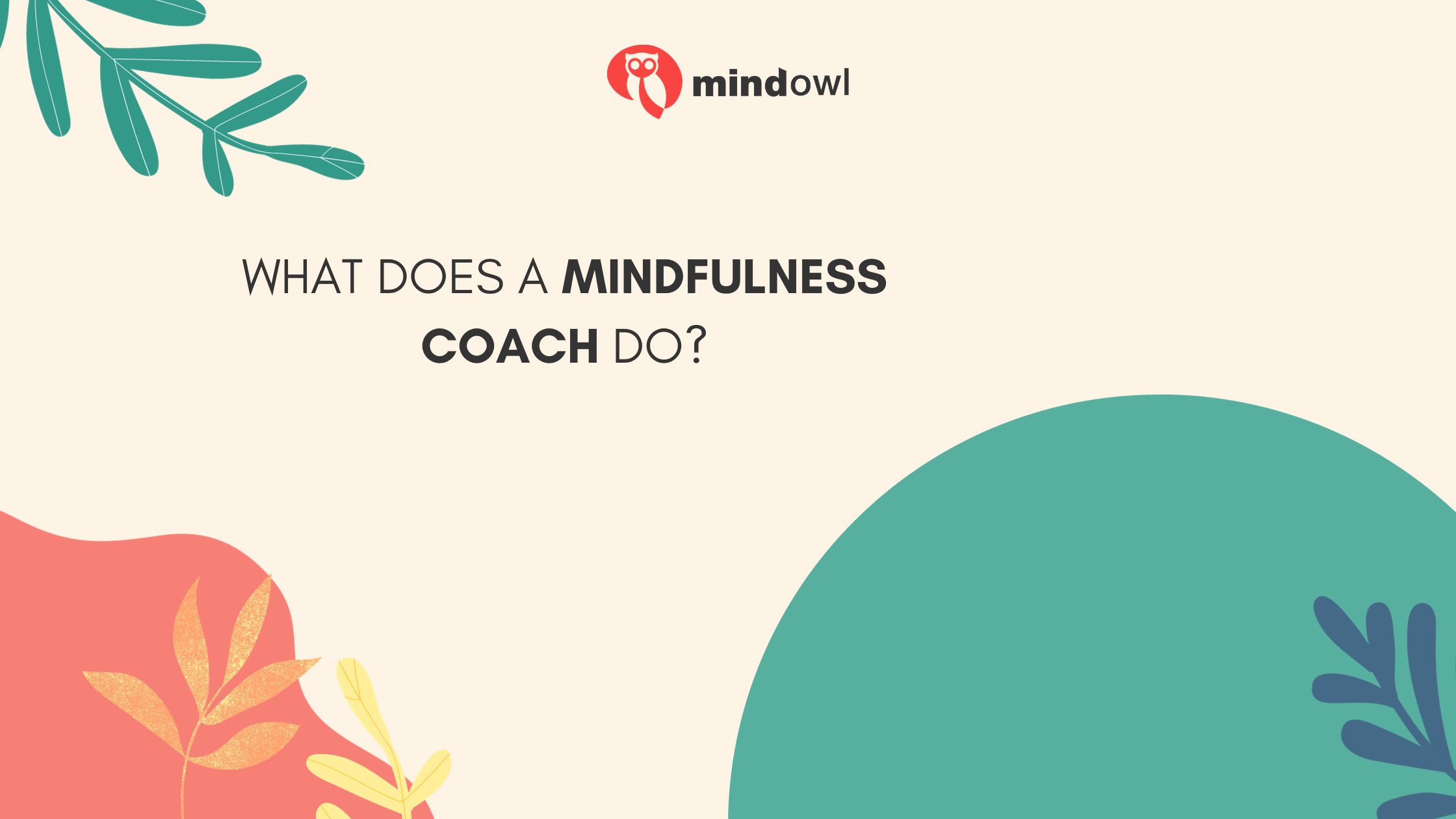
The growing interest in Mindfulness has led to the emergence of a new type of coach – the mindfulness coach. But what exactly does a mindfulness coach do?
A mindfulness coach helps clients develop greater self-awareness, manage stress, and cultivate mindfulness techniques that can be applied to everyday life. Rather than teaching complex meditation practices, a mindfulness coach works with clients to integrate simple but powerful mindfulness principles into their work, relationships, and self-care routines. The focus is on building mindfulness habits that lead to improved health, happiness, and resiliency.
If you are curious to learn more about how a mindfulness coach can support you, read on. This article will illuminate the role of a mindfulness coach and how they help clients lead more fulfilling, mindful lives.
Key Takeaways
- A mindfulness coach guides people to focus on the present and manage stress by teaching them breathwork and other techniques.
- They help clients handle life’s ups and downs, from tackling challenging times to enjoying moments of happiness.
- Coaching in mindfulness can lead to better overall health, less worry, and more stable moods.
- Mindfulness coaches offer different price packages so that people with any budget can learn these helpful skills.
- Sessions usually include a check – in, guided meditation, reflection time, and plans for how to keep practising mindfulness.
What is Mindfulness?

Mindfulness involves paying attention to the present moment without judgment. It is about being fully aware of your thoughts, feelings, sensations, and surroundings. This practice can help reduce stress and anxiety while improving overall well-being.
Mindfulness vs Meditation
Meditation is like a workout for your mind. It uses different techniques to quiet your thoughts and bring you a sense of peace. Mindfulness, on the other hand, is all about staying in the now.
It’s paying full attention to what you’re doing at this moment without letting your mind drift away. You can be mindful anytime, whether you’re eating, walking or even listening to music.
These two practices are friends that help each other out. By meditating regularly, you train your mind to focus better and stay calm. This makes it easier for you to be mindful throughout your day-to-day activities.
Studies have shown that when people mix mindfulness with meditation they can really improve their mental health. They find it helps with stress, anxiety and even depression because it changes their brain in good ways.
Origin of Mindfulness Training
Mindfulness has deep roots that stretch back 2500 years. It comes from ancient eastern wisdom and the heart of Buddhist practices. Hindus, Buddhists, and yogis all used mindfulness long ago.
They understood how focusing on the present moment could calm the mind and body.
People all over the world now use these old techniques to live better lives. Mindfulness training teaches them to notice their thoughts without judgment. This way, they can handle stress better and find peace in their busy days.
The Role of a Mindfulness Coach

A mindfulness coach plays a crucial role in helping clients practice mindfulness in their daily lives, addressing moments of challenge and joy. By providing guidance and support, they help individuals cultivate greater awareness and emotional well-being through the practice of mindfulness techniques.
Helping clients practise mindfulness in daily life
Mindfulness coaches work with their clients to fit mindfulness into everyday routines. They show them how to pay attention in the present moment and not get lost in worries about tomorrow or memories of yesterday.
This might mean guiding a person through breathing exercises while they wait for the bus or suggesting mindful eating during lunchtime.
A coach can help by giving easy tasks that bring mindfulness practice into regular activities. For example, they might teach someone to notice all the different sounds on a walk or feel the water on their hands when washing dishes.
These little changes add up, helping people live more mindfully every day without feeling overwhelmed.
Addressing moments of challenge and joy
Practising mindfulness daily sets the stage for tackling life’s ups and downs. A mindfulness coach steps in to help people find calm during storms and savor sunshine on good days. They guide you through rough patches, teaching ways to stay present and grounded no matter what happens.
This can mean learning to ride the waves of stress with breathwork or finding a peaceful moment even when things get tough.
Celebrating joys is just as important—coaches encourage clients to notice and appreciate every win, big or small. They might lead you through exercises that boost your awareness of happiness right here, right now.
This helps build a habit of spotting joy in everyday life—like enjoying a laugh with friends or feeling the sun on your face.
Benefits of Mindfulness Coaching
Mindfulness coaching can lead to improved well-being, reduced anxiety, and mood stabilisation. Clients often experience transformative effects on their mental health and overall quality of life.
Improved well-being
Having a mindfulness coach can lead to feeling better overall. It’s like having someone show you how to be calm and happy inside. They teach you ways to understand your thoughts and not let them make you too worried or sad.
This can help your heart stay healthy and even help you sleep better at night.
People who have this kind of coaching learn to know themselves more. They find out what makes them feel stressed and how to deal with it calmly. Because of this, they enjoy life more and don’t get upset so easily.
Coaching in mindfulness really does make people’s lives nicer and calmer!
Reduced anxiety
Mindfulness coaching works wonders for calming the mind and cutting down on worry. It’s like training your brain to hit the pause button on racing thoughts that cause stress. People find they can breathe easier and feel less tense after practising mindfulness techniques.
Research backs this up, showing that those who embrace mindfulness see a real drop in their anxiety levels.
A great coach teaches you to spot when anxiety tries to sneak up on you. Then, with expert guidance, you learn how to deal with those feelings right away. This helps keep panic at bay, allowing a sense of peace to settle in instead.
Mindfulness isn’t just about being calm; it gives people the power to take control of their emotions and lead happier lives.
Mood stabilisation
Reducing anxiety is just one piece of the puzzle—stabilising mood is another key benefit mindfulness coaching offers. This type of coaching can be a powerful tool in balancing emotions and maintaining a steady mood.
It works because daily mindfulness makes us better at bouncing back from ups and downs. Studies have found that being mindful every day strongly connects to feeling good inside, no matter what’s going on around us.
People who practise mindfulness meditation get really good at watching their thoughts without getting caught up in them. This means they don’t dwell on things too much, which helps keep their mood even.
Plus, learning how to stay present through mindfulness can stop worry about the past or future from messing with how we feel right now. Coaches guide clients as they learn this valuable skill, helping them find calmness and balance throughout their days.
What a Mindfulness Coach Can Provide
A mindfulness coach can offer mindfulness presence, patience, and effective training and teaching abilities to help clients navigate their mindfulness journey. By providing the necessary support and guidance, a mindfulness coach helps clients learn to focus on the present moment and manage stress effectively.
Mindfulness presence
A mindfulness coach embodies a deep sense of presence and awareness in every session, creating a space where clients can feel heard and supported. Through their own practice of mindfulness, coaches develop the ability to stay present with their clients’ experiences, fostering empathy and equanimity.
This allows them to guide clients in cultivating a similar mindful presence in their daily lives, leading to improved well-being and reduced anxiety. Research also suggests that long-term mindfulness practice enhances an individual’s ability to distinguish their own experience from automatic thoughts and reactions, making the coach’s mindful presence even more impactful.
The cultivation of a strong mindful presence not only benefits the clients but also enhances the effectiveness of the coaching process itself. By anchoring both coach and client in the present moment, mindfulness fosters deeper connections, clearer communication, and more profound insights into thoughts and emotions.
Patience
In cultivating mindfulness presence, an essential quality is patience. This attribute is not merely waiting without frustration but encompasses wisdom and self-control, as emphasised by mindfulness teacher Jon Kabat-Zinn.
Patience forms a vital foundation for the practice of mindfulness, involving the ability to face challenges with inner calmness and faith in oneself. Linked to regulating emotions and active acceptance of the process towards achieving goals, patience is a key element that provides stability and resilience amid life’s ups and downs.
Embracing patience allows individuals to navigate difficulties with grace while remaining connected to their inner core, supporting them on their journey towards well-being.
Training and teaching abilities
A mindfulness coach needs strong training and teaching abilities. This includes the capacity to guide clients through mindfulness practices and techniques effectively, providing clear instructions and explanations.
The coach also requires the ability to tailor their approach to suit the individual needs of each client, ensuring that the coaching sessions are personalised and impactful. Additionally, a good mindfulness coach must possess effective coaching techniques to help clients understand and integrate mindfulness into their daily lives successfully.
A fact worth noting is that mindfulness coaching can help teachers cultivate moment-to-moment awareness of thoughts, feelings, and surroundings which enhances their training and teaching abilities in turn.
Mindfulness Coaching Sessions
During mindfulness coaching sessions, clients can expect a check-in to assess their current state of mind, guided meditation to help them focus and relax, reflection on their experiences, and a plan for moving forward.
To learn more about the ins and outs of mindfulness coaching sessions, click here.
Check-in
At the beginning of a mindfulness coaching session, it’s common to start with a check-in. This practice encourages individuals to pause and centre themselves in the present moment, allowing them to connect with their inner experiences.
Through this process, clients cultivate heightened awareness and gain a deeper understanding of their thoughts and emotions.
Check-ins provide an opportunity for individuals to anchor themselves in the present, fostering a sense of clarity and presence. By starting with this reflective practice, clients are better equipped to engage wholeheartedly in the session and derive greater benefits from mindfulness coaching.
Guided meditation
Guided meditation used in mindfulness coaching helps clients approach life with openness, curiosity, and compassion. Through this practice, individuals learn to slow down racing thoughts, letting go of negativity and calming their minds.
This strengthens their presence, empathy, and ability to stay focused on the client’s well-being. Guided meditation also supports stress management by helping individuals find calmness and face challenges with clarity and intention.
Mindfulness coaches use guided meditation as a mental training practice that teaches non-judgemental awareness. This approach equips them to address moments of challenge and joy while providing effective support for reducing anxiety and stabilising moods.
Reflection
When it comes to reflection, mindfulness coaching encourages coaches and clients alike to pause and consider the present moment. It promotes self-awareness, emotional intelligence, and peace of mind by fostering a deeper sense of awareness in everyday life.
Mindfulness-based therapies have been shown to encourage individuals to reflect on their psychological well-being, leading to improved overall mental wellness. By incorporating reflection into mindfulness coaching sessions, both coaches and clients can cultivate a greater sense of presence and clarity in their lives.
Now let’s delve into how mindfulness coaching sessions typically unfold..
Moving forward
Moving forward, after understanding the role and benefits of mindfulness coaching, it’s essential to consider the practicality of mindfulness coaching sessions. These sessions typically involve a check-in to gauge the client’s current state, followed by a guided meditation aimed at cultivating mindfulness and reflection on the experiences encountered during the session.
By providing these structured sessions, coaches can effectively guide their clients towards improved well-being and reduced anxiety while fostering a deeper sense of awareness and presence in their lives.
Furthermore, setting prices and packages for mindfulness coaching services is crucial. Offering different options such as lower-end, medium-end, and higher-end packages enables coaches to cater to diverse client needs while making effective mindfulness coaching more accessible.
Setting Prices and Packages
When setting prices and packages as a mindfulness coach, it’s important to consider offering lower-end, medium-end, and higher-end options to cater to different client budgets and needs.
This flexibility can make your services more accessible and attract a wider range of clients.
Lower-end, medium-end, and higher-end options
When it comes to setting prices and packages, mindfulness coaches offer a range of options to cater to different client needs. The lower-end packages may include basic coaching sessions and resources, while the medium-end ones could involve more personalised attention and additional materials.
At the higher end, clients can expect comprehensive support, frequent check-ins, customised plans, and access to exclusive mindfulness training resources.
These tiered options allow individuals with varying budgets and requirements to benefit from mindfulness coaching. Coupled with the unique expertise of each coach, this approach ensures that clients receive tailored support regardless of their financial constraints or preferences.
Conclusion
To sum up, a mindfulness coach helps clients practise mindfulness in daily life. They guide people through moments of challenge and joy. The coach’s aim is to improve well-being, reduce anxiety, and stabilise moods by offering anchoring exercises and teaching various methods of cultivating mindfulness.
Moreover, they provide patience, presence, and training abilities to teach clients how to integrate mindfulness into their everyday lives. Mindfulness coaches play a crucial role in helping individuals enhance their mental and emotional well-being through the practice of mindfulness.
FAQs
1. What does a mindfulness coach do?
A mindfulness coach helps people focus on the present moment, manage stress, and improve their overall well-being. They use tools like meditation to teach clients how to be more aware of their thoughts and feelings.
2. How can becoming a mindfulness coach transform your life?
Training to become a mindfulness coach can deepen your own practice of attention training and help you gain skills to support others in reducing anxiety and depression, helping you lead a more fulfilling life.
3. Can anyone become a successful mindfulness coach?
With the right teacher training program or certification course in MBSR (Mindfulness-Based Stress Reduction), nearly anyone with experience in meditation and an interest in the coaching niche can pursue this path.
4. Do I need special training to help clients as a wellness coach?
Yes, engaging in a structured mindfulness course or online coaching program is crucial for obtaining the skills necessary for one-on-one or group coaching effectively.
5. Is online coaching effective for teaching meditation and mindfulness practices?
Absolutely! Online courses offer flexibility, allowing coaches to reach clients far away while providing practical guidance that helps them live better lives without worrying about the future.
6. What makes someone a great mindfulness coach?
A great mindfulness coach listens deeply, understands cognitive therapy principles, guides people through their journey without judgment, and uses proven techniques that anchor individuals firmly in the present moment.
MindOwl Founder – My own struggles in life have led me to this path of understanding the human condition. I graduated with a bachelor’s degree in philosophy before completing a master’s degree in psychology at Regent’s University London. I then completed a postgraduate diploma in philosophical counselling before being trained in ACT (Acceptance and commitment therapy).
I’ve spent the last eight years studying the encounter of meditative practices with modern psychology.

